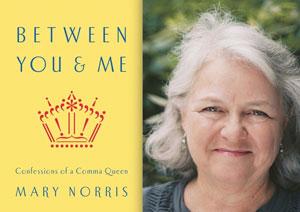
A jolt akin to an electric shock shot through my body when I realized that I have been writing for Up & Coming Weekly for a full 15 years!
I have missed a few weeks for travel, family events and the occasional “mental health” break, but assuming about 45 columns each year, that comes to at least 675 columns — hence, the jolt. I had no idea!
Once my shock subsided, I started pondering some of those columns and responses that have come in over the years. What topics, I asked myself, generated the most response? Politics? Sex? I have addressed teenage pregnancy and single motherhood but not how they actually occur. Religion? Would not touch that with a 10-foot pole. The eternal quest for world peace? Zzzz
So what interested readers most? No contest. Up & Coming Weekly readers are fervently interested in tattoos and the English language, grammar included.
Tattoo responses generally addressed why the writer got tatts and how he or she feels about them. Most people feel just fine. I did get slightly uneasy one evening when I walked by a bandstand and a country musician with much colorful ink snarled at me, “What have you got against tattoos, lady?” though most folks are not quite that invested.
English grammar aficionados, on the other hand, are deadly serious about our language and its usage, as frankly, am I. The Precious Jewels suffered zillions of grammar corrections over the years — when to use “lay” and when to use “lie” along with why Mary did not go to the movie with “you and I.” Like art and pornography, I think they know correctly used English most of the time, which I consider one of my main legacies as a mother.
Imagine how delighted I am to meet, on paper and online, Mary Norris, who unapologetically refers to herself as the Comma Queen. Norris has worked for The New Yorker magazine, long known for being a total stickler when it comes to grammar and using exactly the right word, for nearly four decades. She has recently published and essay in The New Yorker — where else — about learning to love its iconic style, and she has a book coming out next month subtitled Confessions of a Comma Queen. Best of all are the Comma Queen’s charming videos on YouTube in which she tackles such burning topics as “Who/Whom for Dummies,” which is quite enlightening.
Norris knows a great deal about commas, of course, and offers examples of why proper placement of them is critical. Below we see what happens when they are in the wrong place or nowhere at all.
“We invited the strippers, J.F.K and Stalin.” We would all have liked to have
seen that.
“This book is dedicated to my parents, Ayn Rand and God.” Who knew?
“And there was the country-and-Western singer who was joined onstage by his two ex-wives, Kris Kristofferson and Waylon Jennings.” Who knew that either?
Norris is also knowledgeable and concerned about words and how they are used. She frets, as do many other language lovers, over what she terms “vogue words.” Think “massive” and “awesome,” words that have been so overused that they are virtually meaningless. Can you really have a “massive” headache when an ache has no actual mass at all? If you have an “awesome” party, does that mean your hospitality inspired awe among your guests or did they merely have a fine time?
What about the void — a real limitation — in English that Norris correctly points out and which sounds to me like a nail grating along a chalkboard every time I hear it. Unfortunately, that is daily. Unlike some other tongues, English does not have a gender neutral word to use when we do not know which gender a person is. For example, “A person stood in the doorway, but _____ did not come in the room.” A correct way to fill that blank would be “he or she,” but that sounds cumbersome. So, we often use the plural “they” when we are referring to a single individual, which is incorrect but so common now that the American Dialect Society has declared “they” the “word of the year” in 2015. Other winners include “bushlips” in 1990, referring to President George H. W. Bush’s “Read my lips. No new taxes” promise, “metrosexual” in 2003, and “truthiness” in 2005, made famous on The Colbert Report.
My takeaway from all this?
Language is dynamic, always expanding and sometimes retiring words and uses, but at the end of the day we must have some rules or we will turn into a tower of Babel.
I can hardly wait to hear from my fellow English lovers, so sock it to me.
Ummm…I wonder whether the Comma Queen would say that.

 How to resolve AdBlock issue?
How to resolve AdBlock issue? 








